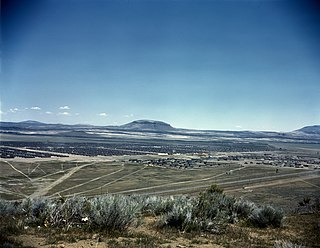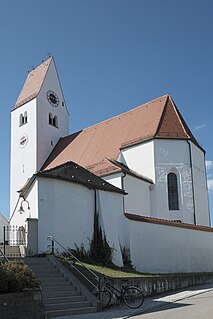Related Research Articles

War film is a film genre concerned with warfare, typically about naval, air, or land battles, with combat scenes central to the drama. It has been strongly associated with the 20th century. The fateful nature of battle scenes means that war films often end with them. Themes explored include combat, survival and escape, camaraderie between soldiers, sacrifice, the futility and inhumanity of battle, the effects of war on society, and the moral and human issues raised by war. War films are often categorized by their milieu, such as the Korean War; the most popular subject is the Second World War. The stories told may be fiction, historical drama, or biographical. Critics have noted similarities between the Western and the war film.

The internment of Japanese Americans in the United States during World War II was the forced relocation and incarceration in concentration camps in the western interior of the country of about 120,000 people of Japanese ancestry, most of whom lived on the Pacific Coast. Sixty-two percent of the internees were United States citizens. These actions were ordered by President Franklin D. Roosevelt shortly after Imperial Japan's attack on Pearl Harbor.
During the Dachau liberation reprisals, German prisoners of war were killed by U.S. soldiers and concentration camp internees at the Dachau concentration camp on April 29, 1945, during World War II. It is unclear how many SS members were killed in the incident but most estimates place the number killed at around 35–50. In the days before the camp's liberation SS guards at the camp had forced 7,000 inmates on a death march that resulted in the death of many from exposure and shooting. When Allied soldiers liberated Dachau, they were variously shocked, horrified, disturbed and angered at finding the massed corpses of internees, and by the combativeness of some of the remaining German guards who allegedly fired on them.

The 442nd Infantry Regiment is an infantry regiment of the United States Army and is the only infantry formation in the Army Reserve. The regiment is best known for its history as a fighting unit composed almost entirely of second-generation American soldiers of Japanese ancestry (Nisei) who fought in World War II. Beginning in 1944, the regiment fought primarily in the European Theatre, in particular Italy, southern France, and Germany. Many of the soldiers from the continental U.S. had families in internment camps while they fought abroad. The unit's motto was "Go for Broke".

The Tule Lake National Monument in Modoc and Siskiyou counties in California, consists primarily of the site of the Tule Lake War Relocation Center, one of ten concentration camps constructed in 1942 by the United States government to incarcerate Japanese Americans forcibly removed from their homes on the West Coast. They totaled nearly 120,000 people, more than two-thirds of whom were United States citizens.
The New York Guardian was a monthly periodical published by Herbert London, a professor at New York University and the 1990 Conservative Party candidate for governor of New York State. The paper's editor-in-chief was Christopher W. Ruddy, who went on to work as an investigative reporter at the New York Post and then to found and edit NewsMax.

The 761st Tank Battalion was an independent tank battalion of the United States Army during World War II. The 761st was made up primarily of African-American soldiers, who by federal law were not permitted to serve alongside white troops. The U.S. military did not officially desegregate until after World War II. The 761st were known as the Black Panthers after their unit's distinctive insignia; their motto was "Come out fighting". The battalion received a Presidential Unit Citation for its actions. In addition, a large number of individual members also received medals, including one Medal of Honor, 11 Silver Stars and about 300 Purple Hearts. They have been called "one of the most effective tank battalions in World War II".

Liliana Cavani is an Italian film director and screenwriter. She belongs to a generation of Italian filmmakers from Emilia-Romagna that came into prominence in the 1970s, including Bernardo Bertolucci, Pier Paolo Pasolini and Marco Bellocchio. Cavani became internationally known after the success of her 1974 feature film Il portiere di notte. Her films have historical concerns. In addition to feature films and documentaries, she has also directed opera.

The Japanese American Memorial to Patriotism During World War II is a National Park Service site to commemorate the experience of American citizens of Japanese ancestry and their parents who patriotically supported the United States despite unjust treatment during World War II.
Leon Bass was an educator from Philadelphia. He is noted as an African-American soldier in World War II who witnessed the Buchenwald concentration camp.

Hurlach is a municipality in the district of Landsberg in Bavaria in Germany.
Ralph Rosenblum was an American film editor who worked extensively with the directors Sidney Lumet and Woody Allen. He won the 1977 BAFTA Award for Best Editing for his work on Annie Hall, and published an influential memoir When the Shooting Stops, the Cutting Begins: A Film Editor's Story.

Camp Tulelake was a federal work facility and War Relocation Authority isolation center located in Siskiyou County, five miles west of Tulelake, California. It was established by the United States government in 1935 during the Great Depression for vocational training and work relief for young men, in a program known as the Civilian Conservation Corps. The camp was established initially for CCC enrollees to work on the Klamath Reclamation Project.
William Miles was an American filmmaker. Born in Harlem, New York, he used his deep knowledge and experience of that borough to produce films that tell unique and often inspiring stories of Harlem's history. Based at Thirteen/WNET in New York City, William Miles produced many films dedicated to the African-American experience that have been broadcast nationwide.
Events in the year 1945 in Germany.
Nina Rosenblum is an American documentary film and television producer and director and member of the Academy of Motion Picture Arts and Sciences and the Directors Guild of America. Italian Fotoleggendo magazine said Rosenblum “is known in the United States as one of the most important directors of the investigative documentary”.
Walter A. Rosenblum (1919–2006) was an American photographer. He photographed the World War II D-Day landing at Normandy in 1944. He was the first Allied photographer to enter the liberated Dachau concentration camp. He received several military decorations including a Purple Heart. His photography is on display in museums around the world.
Season five of the television program American Experience originally aired on the PBS network in the United States on September 20, 1992 and concluded on March 1, 1993. This is the fifth season to feature David McCullough as the host. The season contained 12 new episodes and began with the first part of The Kennedys film, "The Father, 1900–1961".

Night Will Fall is a 2014 documentary film directed by Andre Singer that chronicles the making of the 1945 British government documentary German Concentration Camps Factual Survey. The 1945 documentary, which showed gruesome scenes from newly liberated Nazi concentration camps, languished in British archives for nearly seven decades and was only recently completed.
References
- ↑ Finkle, Lee (December 1993). "Liberators—Fighting on Two Fronts in World War II. Prod. by William Miles and Nina Rosenblum. Miles Educational Film Production, 1992. 90 mins. (Direct Cinema, P.O. Box 10003, Santa Monica, CA 90410-9003)". The Journal of American History. 80 (3): 1192–1193. doi:10.2307/2080582. JSTOR 2080582.
- ↑ "The Liberators: Fighting on Two Fronts in World War II". Facing History. Retrieved October 3, 2019.
- ↑ Richard Bernstein (March 1, 1993). "Doubts Mar PBS Film of Black Army Unit". New York Times. Retrieved October 3, 2019.
- ↑ "Potter, Lou, William Miles, and Nina Rosenblum. Liberators: Fighting on Two Fronts in World War II. New York: Harcourt Brace Jovanovich, 1992" . Retrieved October 3, 2019.